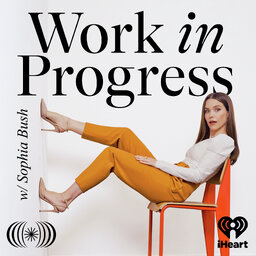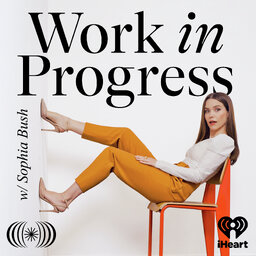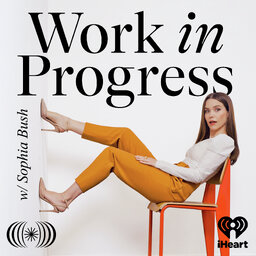Whitney Cummings is a stand-up comedian, actress, producer, writer, and director. She sits down with Sophia for over two hilarious hours (with her robot Bearclaw) to discuss her new Netflix special “Can I Touch It?” and how she got into stand up, codependency, sex robots, genomic imprinting, her upcoming projects, and their shared love of antique owls. Executive Producers: Sophia Bush & Sim Sarna Supervising Producer: Allison Bresnick Associate Producer: Caitlin Lee Editor: Josh Windisch Music written by Jack Garratt and produced by Mark Foster Artwork by Kimi Selfridge This show is brought to you by Brilliant Anatomy.
 Work in Progress with Sophia Bush
Work in Progress with Sophia Bush


